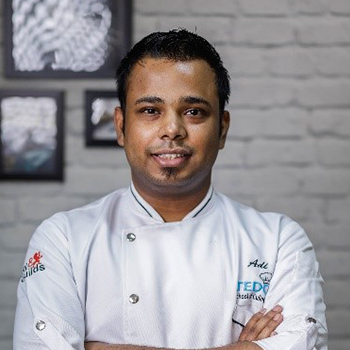

The world of culinary arts is no longer limited to local kitchens. Today, talented chefs are in demand globally, whether it’s at luxury hotels in the UAE, cruise liners sailing the Mediterranean, or fine-dining restaurants in Singapore and France. If you're someone who dreams of cooking in an international kitchen, a diploma in culinary arts after the 12th could be your ticket to that global opportunity.
In this blog, we'll explore how enrolling in the right culinary institute can help you get selected for international internships and even open doors to long-term job placements abroad.
A professional culinary diploma isn’t just about learning how to cook, it’s about preparing to work in world-class kitchens. To be internationally relevant, the diploma should offer:
Some culinary institutes in India, like TGCA (TEDCO Global Chefs Academy), go beyond teaching and offer structured global internship tie-ups. These partnerships are often with:
Students selected for internships abroad are typically chosen based on their academic performance, attendance, professionalism, and final interviews. Such opportunities give students hands-on experience in real, fast-paced international kitchens, setting them apart from others in the field.
A standard culinary school may teach you recipes, but a globally-focused program prepares you for the real work culture overseas. Here's how:
At TEDCO, for example, students undergo mock kitchen simulations and prep-line training to match global restaurant environments.
Your diploma isn’t just a certificate, it becomes your foundation to build a strong portfolio for global recruiters.
Having a well-documented culinary portfolio is often the deciding factor when international employers select interns.
One of the biggest challenges in securing international internships is clearing the interview stage, which includes communication skills, etiquette, and grooming. That’s why many institutes also include:
At TGCA, students are given real-time interview practice and feedback from chef instructors and alumni working abroad, giving them a real edge.
These real-life examples show that your dream job abroad is achievable with the right guidance and hard work.
Still wondering why an international internship matters? Here’s what it brings:
Not every student automatically qualifies for an international internship, but those who follow these tips often do:
Best culinary arts colleges in india like TEDCO reward dedicated students with better internship opportunities, based on chef recommendations and performance reviews.
A diploma in culinary arts after 12th is not just a way to learn how to cook—it’s a path to global kitchens, exciting internships, and high-paying international jobs. With the right program, faculty, and mindset, your dreams of working in hotels abroad or on cruise ships can become a reality.
Whether you want to be a bakery chef in France, a line cook in Dubai, or a pastry intern in Singapore, the first step begins in a classroom that offers not just training, but a global opportunity.
Choose a culinary institute like TGCA that believes in opening doors beyond borders. Your chef journey is just beginning, and the world is ready to taste your talent.
Yes, many culinary diplomas offer global internship tie-ups. If your course includes international partnerships and your performance is strong, you can apply for internships in hotels, resorts, or cruise lines abroad.
Popular destinations include the USA, UAE, Thailand, Singapore, Mauritius, France, and Malaysia. TGCA has global internship tie-ups that give students real-world experience in internationally recognised kitchens across these regions.
You need strong practical skills, teamwork, discipline, and basic English communication. A good attendance record and participation in kitchen projects also improve your chances of being selected for internships abroad.
Yes, most institutes include grooming, spoken English, and mock interview training. At TEDCO, students receive guidance on embassy interviews and are coached to confidently face global hospitality recruiters.
Absolutely. Working internationally builds your resume, teaches advanced techniques, and improves your confidence. Many students receive job offers after internships, especially when mentored well during their diploma.
It depends on the host organisation. Some offer stipends, meals, and accommodation, while others may be unpaid but provide excellent experience. TGCA ensures students are placed with reputed brands offering fair terms.
Yes, internships are designed for students with basic training. Your performance during the course matters more than prior work experience. Institutes like TEDCO help first-time students prepare thoroughly for this leap.
You’ll need a valid passport, training certificate, internship letter, and visa documents. Your institute often assists in compiling these. TGCA’s international cell supports students with documentation, embassy appointments, and interview guidance.

Bakery & Pastry Instructor
Click one of our representatives below to chat on WhatsApp or send us an email to
info@tedcoeducation.com
Counselor
Bakery and Pastry Courses
Counselor
Culinary Arts Courses
Click one of our representatives below to chat on WhatsApp or send us an email to
info@tedcoeducation.com
Counselor
Bakery and Pastry Courses
Counselor
Culinary Arts Courses